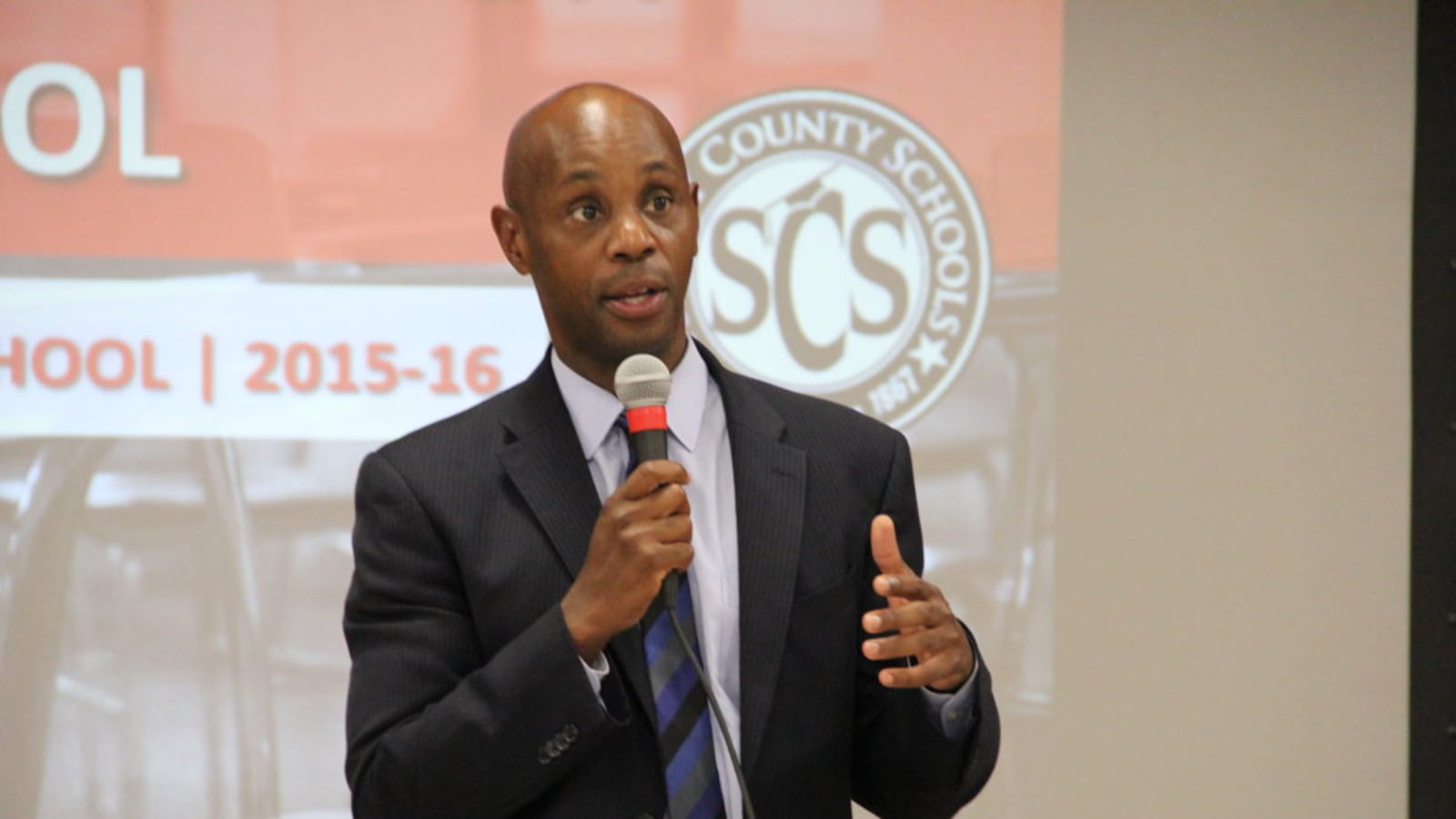A widening investigation into grade-changing at Memphis high schools has led to the suspension of one principal and a moratorium on a controversial grading practice across Shelby County Schools.
Hamilton High School Principal Monekea Smith was suspended without pay after investigators found that improper grade changes happened under her watch, a district spokesperson confirmed Tuesday.
Superintendent Dorsey Hopson also issued a moratorium on the use of “grade floors” after determining that the practice was being abused to justify unwarranted grade changes at Hamilton.
“Effective immediately, we are instituting a moratorium on the use of grade floors,” Hopson wrote Tuesday in an email to teachers. “Grade floors were meant to ensure failing grades did not go below a certain level, so our students would have a better chance of improvement. It was never intended to allow the changing of grades from failing to passing, and anyone found guilty of doing so will face immediate disciplinary action.”
The developments reflect the widening scope of an investigation into allegations of falsified grades at Memphis high schools. The examination began last year at Trezevant High School when its former principal noticed discrepancies between transcripts and report cards. A coach and a secretary have been dismissed there after investigators found evidence of wrongdoing, but the suspension of Hamilton’s principal is the first to affect other schools.
A grade floor is the lowest grade a teacher can assign a student during a single period and had been a gray area in the district’s grading policy. Independent investigators hired to look into Trezevant recommended that Shelby County Schools create uniform rules on the matter.
Hopson’s directive to ban grade floors — for now — means that teachers and administrators are not allowed to give a higher grade than what a failing student earned. He plans to propose a new policy in January based on feedback from educators.
Proponents of grade floors had called them a useful tool to motivate students who lag far behind to bring up their grades — for instance, bumping a student performing at 20 percent up to a 60 percent on a scale that requires at least a 70 percent to pass.
But the practice had gotten out of hand at Hamilton, according to Hopson.
Hamilton had not been mentioned in almost 300 pages of reports from investigators who found that 10 high schools had high rates of grade changes.
However, Hamilton was cited in a draft report from Ed Stanton, the former U.S. attorney who led one investigation, according to a high-level source familiar with the report. Stanton’s team found grading changes at Hamilton and recommended further investigation, but the recommendation never made it into the final report.
District officials did not immediately respond to a request for comment on why the recommendation was omitted from the final report. They also declined to elaborate on whether the changes at Hamilton are the result of the external investigation or an internal review.
Former Hamilton teacher Michael Pleasants was interviewed by Stanton’s team and reported that some of his students’ grades had been improperly changed during his two-year tenure. Pleasants told Chalkbeat that the district should look even wider than the schools with high instances of grade changes, citing a “pervasive” culture of pressuring teachers to pass students who aren’t ready.
“Don’t try to scapegoat anybody over this. It isn’t just one person,” he said. “It shouldn’t be presented as just a few bad apples but most people do their jobs right.”

